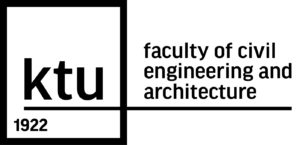One-week online soviet modernism architecture summer school and introduction seminar for students and young professionals. It’s part of Kaunas 2022 European Capital of Culture “Modernism for the Future”.
Participants will critically reflect on the changes in society, culture, community, and environment that have eroded former utopian vision of the soviet-era residental Eiguliai district in Kaunas and will propose new interventions that respond to our uncertain future.
Any student or young professional, who is interested in our history, society, architecture, urban planning, and design. Summer school will benefit from a broad range of knowledge.
Participants will have pre-recorded videos, photos of the site, where will be online sessions and of course teamwork. Participants will be supervised by teachers from Kaunas University of Technology (LT) and Bartlett School of Architecture (UK) and other professionals.
On 06 11 we organize a seminar with 3 presenters about soviet-era housing from urbanistic to social context. The seminar is open for everybody.
On 06 28 – 07 02 we organize a summer school.
You can choose to participate in both of them, or if you can’t – in only one.
Nothing. You can participate in seminar and summer school for free.
Kaunas University of Technology / Bartlett School of Architecture, UCL/ Kaunas 2022
This year’s Kaunas International Summer School confronts our age of uncertainty. The global pandemic caused by the COVID-19 virus has touched the lives of everyone on the planet, especially those living in cities. In 2007 more people were living in cities than in rural areas. However, the pandemic has seen a reversal of this trend with some people seeking the space and isolation of the countryside. All our experiences over the last 18 months, is causing us to critically and profoundly re-evaluate our relationship with our friends, families and communities, and our homes, our neighbourhoods, our cities and our planet.
International summer school invites participants from architectural and other creative practices to analyse and decode an existing residential cityscape in order to develop new visions of future utopias.
Taking the Soviet-era residential district of „Eiguliai“ as a site of investigation, this year’s Kaunas Summer School will introduce participants to the site through films, interviews, lectures and other media. A Soviet-era housing project that is just one of the many layers that make up Kaunas’s rich and characteristically modern urban fabric. Participants will critically reflect on the changes in society, culture, community and environment that have eroded this former utopian vision and will propose new interventions that respond to our uncertain future. The Summer School will engage participants and the public in a series of collaborative workshops to share the ideas with residents and develop innovative design proposals. Working in groups, participants will be expected to engage critically and supportively with each other to address questions of private and public space, spatial justice, equity, ecology, play, materiality, sustainability, connectivity, transportation, infrastructure and landscape.
Combining their learning from „Eiguliai“ and the collective experiences from their respective contexts, each group will generate a design output in the form of drawing, poster, manifesto, animation or other forms of creative intervention that responds to one of the three key themes:
We are interested to integrate your personal experiences wherever you are and whatever your field of work and interest is, into a design response. We will be working on- and off-line and will transform personal observations into a collaborative design response. A wide range of responses will be used from film to drawing, from sketch to animation, or text to manifesto.
The outcomes will be collected and collated to form part of the generative archive for the Kaunas European Capital of Culture 2022.
WHO CAN PARTICIPATE:
Students and / or young professionals from all fields who are interested in the history, architecture, social context and transformations of Soviet-era residential districts.
June 11th 11:00–17:00 (EEST) we invite you to the seminar about housing estates in various cities in West and East Europe during the 20th century and Soviet-era residential districts from urbanistic to social context.
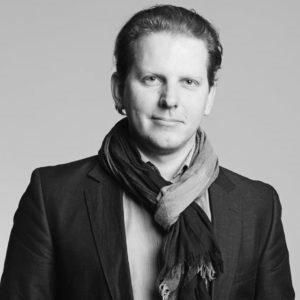
Martynas Marozas is a lecturer at Kaunas University of Technology Faculty of Civil Engineering and Architecture. Martynas currently is head of MMAP. It is a Vilnius-based urban planning company that specializes in working with territorial planning and development projects and strategies.
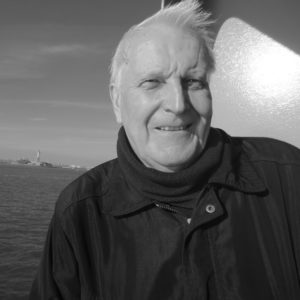 Housing Estates from 20th to 80th and their aftermath
Housing Estates from 20th to 80th and their aftermathThe lecture will present a panorama of housing estates in various cities in West as well in East Europe from 20th to 80th and will discuss their transformations for 21st century
Vladimír Šlapeta is a professor of Architecture Faculty – Brno University of Technology BUT and Czech Technical University in Prague, member of the Akademie der Künste in Berlin and author of many books and exhibitions on Czech and Central European Architecture of 20th century.
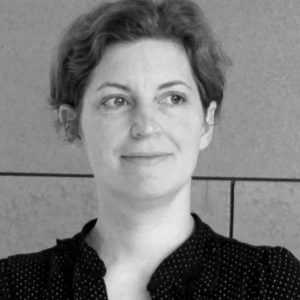 Bodies, spaces and control: intersections of private and public in everyday lives of people in societies of East Central Europe during socialism (findings of anthropology)
Bodies, spaces and control: intersections of private and public in everyday lives of people in societies of East Central Europe during socialism (findings of anthropology)Kristina Šliavaitė is an anthropologist who gained her PhD in social anthropology at Lund University in 2005. She conducted her ethnographic fieldwork in a town built in the Soviet period next to the Ignalina nuclear power plant in Lithuania and in her doctoral thesis she analyses narratives of local people about possible urban, economical, social decline of town caused by decommissioning of the plant. She is teaching a course on research conducted by anthropologists in various locations of socialist and post-socialist East Central Europe which reveals the great value of ethnographic research in understanding human behavior in different socio-cultural contexts.
REGISTRATION to the seminar is until 10th of June
06 28-07 02 International Summer School – a follow-up event of the international summer schools “Modernism for the Future” organized in 2018 and 2019. The school will be organized remotely. During the summer school, participants will integrate their personal experiences wherever they are, into a design response. We will be working on-line and off-line and will transform personal observations into a collaborative design response.
| 28 06 | Monday / 1st day of workshop* DAY TOPIC – WHAT DO WE KNOW? |
| The aim of the day is to find out what we know about the residential districts designed during the Soviet-era. What was the planning idea, urban structure, buildings architecture? Participants will have a virtual tour – Field visit together with the architecture historian Assoc.prof. Vaidas Petrulis | |
| 29 06 | Tuesday/ 2nd day of workshop* DAY TOPIC – WHAT CAN WE DO? |
| The aim of the day is to start thinking about what we can offer for these neighbourhoods, starting with ideas for creating A New Spatial Equity, thinking about buildings designs, Urban Landscapes, Urban Resilience. | |
| 30 06 | Wednesday/ 3rd day of workshop* DAY TOPIC – WHAT DO PUBLIC WANT? |
| The aim of the day is to start to hear the public opinion. We will hear an interview with the residents from Eiguliai districts and will try to find common elements between the residential district in Kaunas and in the participant’s native neighbourhood. | |
| 01 07 | Thursday/ 4th day of workshop* DAY TOPIC – WHAT DO WE THINK ABOUT SOVIET HERITAGE? |
| This day topic is very sensitive. We will start our discussion about inconvenient heritage. What should be protected as heritage? What is the value of Soviet-era residential areas? Interview with Assoc.prof. V.Petrulis | |
| 02 07 | Friday/ 5thd day of workshop* DAY TOPIC – WHAT ARE OUR VISIONS? |
| Day to finalize and share your visions. Let’s discuss retopia optimistic between the past and the future. |
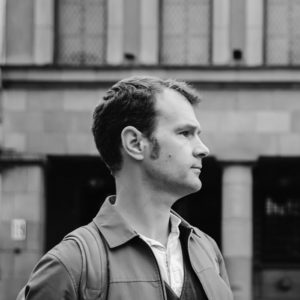
Professor at Bartlett School of Architecture (UK) and an independent consultant, writer and photographer specializing in global histories of architecture and the built environment. His work for various international organizations in places as diverse as Africa, China and Europe is regularly published in international print, electronic and broadcast media. In 2016 and 2017 he received the RIBA President’s Medal for Research for “Asmara – Africa’s Modernist City” and “Ultra-Modernism: Architecture and Modernity in Manchuria”.
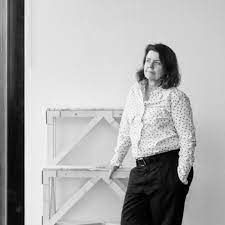 Sabine Storp
Sabine StorpAssociate Professor at Bartlett School of Architecture (UK). Her research is currently exploring the idea of architecture as inclusive practice with a clear focus on integrating community engagement as inclusive participatory design at all levels of project design and implementation.
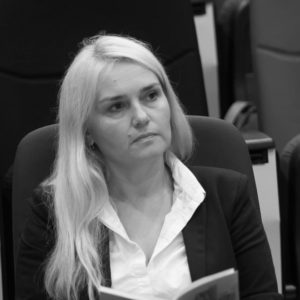
Lecturer at the KTU SAF architecture program, not only teaching design modules, but also having extensive experience working on research and study projects. She is currently working on a research project on modern information systems for urban regeneration, as well as on the study projects PBL South Asia, which aims to strengthen problem-based learning in South Asian universities, GENIUS LOCI: urbanization and civil society, which aims to involve citizens in the planning of the territory of Šančiai district. As well as, she conducts various non-formal education programs for children and youth: Summer Camp “Architecture Academy” “Design.Engineer.Construcy.LT (DEC.LT)“.
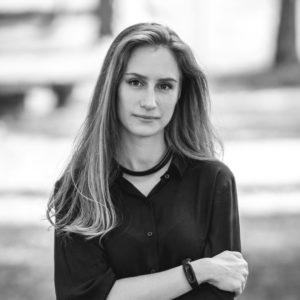
An architect in architecture studio “Vilius ir partneriai” and PhD student in Kaunas University of Technology. Her current and previous research interests include fields of ecological architecture, urban structure and strategy, legibility of urban spaces, catalytic processes in the city.
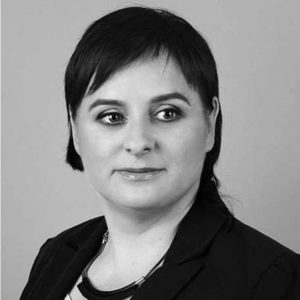
Lecturer at the Faculty of Civil engineering and Architecture of KTU, lecturer of architecture, member and lecturer of the center for contemporary didactic competence development EDU_lab (KTU) working in the fields of design thinking and challenge-based learning.
Expected outcomes:
PARTICIPATION FEE
Both events are free!
Upon successful completion of the summer school, participants will receive Certificates, a Publication of ideas generated during the school and Participation Gifts (the fall of 2021)
WHO CAN PARTICIPATE:
International summer school welcome Students and/or young specialists from all fields who are interested in the modernism history, architecture, social context and transformations of Soviet-era residential areas.
If you have any questions, write them to laura.jankauskaite-jureviciene@ktu.lt
All information created or shown in events is just for event purposes only and can’t be copied for personal or commercial use.
Oops! We could not locate your form.
If your registration was successful, you will get a notification to your email. Some older browsers users have hard times filing form. If that is true for you, just write an email to laura.jankauskaite-jureviciene@ktu.lt. Good luck!
Eiguliai is a district of Kaunas city, located in its northern part. One of the most prominent objects and attraction centers at the entrances to Eiguliai district is the Kaunas Clinic of the Lithuanian University of Health Sciences Hospital, which was started to build in 1937 and expanded during the Soviet era (1967–1982). At the beginning of the seventies, when the construction of the Kalniečiai district began, the planners also prepared development plans for Eiguliai. The urban planners of this district were architects S. Lukošius and G. Miškinienė. Construction of Eiguliai apartment houses were started in 1979. In Eiguliai, as well as in Kalniečiai, large apartment buildings of the same series were built. In Eiguliai districts I and II designed by S. Lukošius, the streets are arranged according to the principle of tree branches, when small streets lead to the main central street. In Eiguliai, just like in Kalniečiai, essentially the same architectural-construction solutions were applied: reinforced concrete slabs were used for the yard covering, children’s playgrounds were built from originally applied construction waste, house numbers and street names were written in large letters on the walls of apartment buildings.
By the middle of the eighties, 4 multi-apartment house districts had been built in Eiguliai, the infrastructure was well developed: a trolleybus line had been built to improve communication, two shops and 4 schools had been established. Though, no park or leisure area has been originally formed in Eiguliai district, this is partially compensated by the Kleboniškis forest sitting nearby. In addition, a clearly distinguished attraction center was not created in Eiguliai, even though it was planned next to the former Eiguliai cinema, according to the designers’ project. From an urban and visual point of view, Eiguliai district has become a continuation of the Kalniečiai district, which was developed a little earlier.
Regarding the type of apartment houses, schools, kindergartens and other buildings, the morphotype of Eiguliai and Kalniečiai districts is more or less homogeneous. Eiguliai district was completed in 1985.
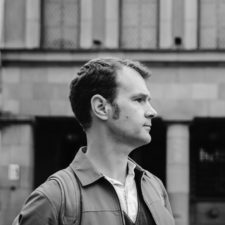
THE BARTLETT SCHOOL OF ARCHITECTURE (UCL)

THE BARTLETT SCHOOL OF ARCHITECTURE (UCL)
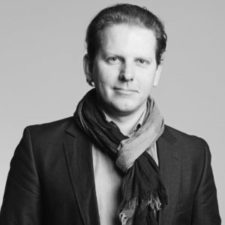
URBAN PLANNING COMPANY MMAP, KTU FACULTY OF CIVIL ENGINEERING AND ARCHITECTURE
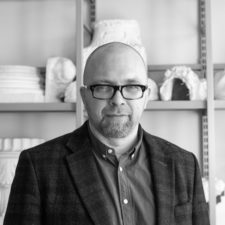
ARCHITECTURE AND URBANISM RESEARCH CENTRE, KTU FACULTY OF CIVIL ENGINEERING AND ARCHITECTURE
![oro-balionu-virs-Santakos-300x300[1] oro-balionu-virs-Santakos-300x300[1]](https://fcea.ktu.edu/wp-content/uploads/sites/214/2021/06/oro-balionu-virs-Santakos-300x3001-1-225x225.jpg)
VIDMANTAS MINKEVIČIUS STUDY, KTU FACULTY OF CIVIL ENGINEERING AND ARCHITECTURE
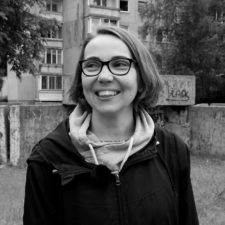
INITIATOR OF INFORMAL COMMUNITY: “NEIGHBOURS OF UKMERGĖ STREAT”
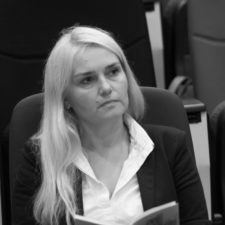
KTU FACULTY OF CIVIL ENGINEERING AND ARCHITECTURE
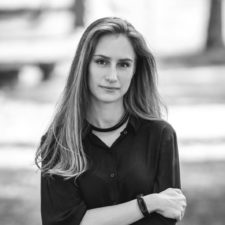
KTU FACULTY OF CIVIL ENGINEERING AND ARCHITECTURE
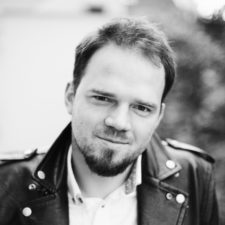
KTU FACULTY OF CIVIL ENGINEERING AND ARCHITECTURE
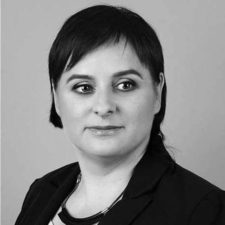
KTU FACULTY OF CIVIL ENGINEERING AND ARCHITECTURE
